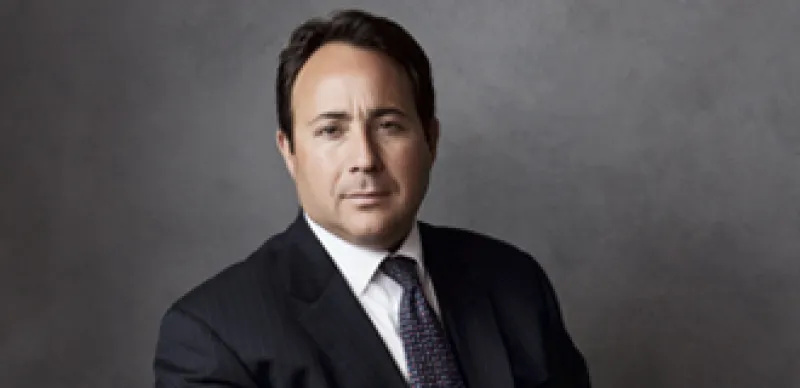Tiger Woods and Elin Nordegren, Al and Tipper Gore, Prudential and AIA Group. Breakups seem to be everywhere. With the collapse of the British insurer’s $35.5 billion bid for American International Group’s Asian life insurance arm, deals that came asunder worldwide this year had reached $137 billion by the end of May — almost double last year’s $71 billion. Dealogic reckons that since 2007 some $2 trillion of would-be mergers have come unstuck.
To Michael Aiello, a 41-year-old partner of New York–based law firm Weil, Gotshal & Manges, the implication is obvious: He needs more than ever to shield his merger clients from deals’ collapsing — and from the stood-up party claiming multimillions in compensation. So-called reverse breakup fees can run to 5 percent or more of a deal’s value.
Thus, when Sandusky, Ohio-based amusement park operator Cedar Fair Entertainment Co. decided last December to sell itself to New York private equity giant Apollo Global Management, Aiello recommended that Cedar Fair establish a two-tier breakup fee structure. The company’s board was concerned that Cedar Fair’s unit holders might vote down the $2.4 billion merger. With Aiello’s help, the two sides drew up an agreement under which Cedar Fair would reimburse Apollo for deal expenses of no more than $6.5 million if its unit holders did indeed veto the merger. However, under the agreement devised by Aiello, if Cedar Fair ditched Apollo for a higher bid, it would have to shell out a $20 million breakup fee to the private equity firm. “Mike was able to address an anticipated situation and mitigate the execution risk,” says Duffield Milkie, Cedar Fair’s general counsel. “On the other hand, the breakup fee is low enough not to botch our go-shop options.” When Cedar Fair’s board scotched the deal in April, the company paid Apollo the $6.5 million.
The heightened danger of deals falling through in this uneasy economic climate has also increased the popularity of the reverse breakup fee, Aiello reports. This is a fee paid by the buyer rather than the seller if the buyer backs out. “Reverse breakup fees were initially used to address regulatory hurdles,” the attorney notes. “Since the crisis they are used in almost every deal to address financing risk.” In the case of Cedar Fair, Apollo was subject to a $50 million reverse breakup fee if it came up empty-handed on the financing for the deal.
Aiello estimates that reverse breakup fees have risen from typically 1 to 3 percent of a deal’s equity value before the crash to 5 to 8 percent today. He is proffering counsel on more than $1 billion in breakup fees triggered by the failed $52 billion buyout of Canadian communications giant BCE by an investment group led by the Ontario Teachers’ Pension Plan.
Not only is the penalty for backing out of a deal getting stiffer, but the courts appear to be increasingly accepting of shotgun marriages. Huntsman Corp., for example, sued Apollo under the doctrine of “specific performance” to force the private equity firm to follow through with a $6.5 billion buyout of the Woodlands, Texas, chemicals maker. Although the Delaware Chancery Court ruled in Huntsman’s favor, it settled with Apollo rather than pursue the buyout. “In the past, it was questioned whether the court could compel one party to buy another,” says Aiello. “But if a party argues for specific performance, the court — particularly the more sophisticated courts in Delaware and New York — is likely to force closing nowadays if there is no breach.”
Growing up in Brooklyn, the son of an Italian immigrant carpenter, Aiello learned the importance of family, education and the Yankees (in that order). He studied political science at New York University and graduated first in his law school class at Widener University. After a couple of years at Weil Gotshal, he moved to Dewey Ballantine, becoming a partner in 2003. He returned to Weil Gotshal in 2007, this time as a partner. Aiello remembers to make time for his wife and three children — and the Yankees. A seat from the old Yankee Stadium decorates his office.






